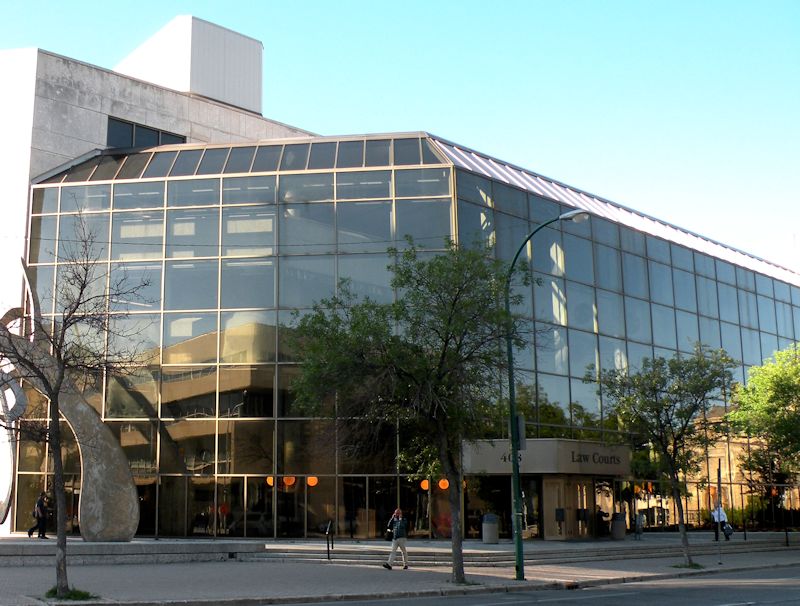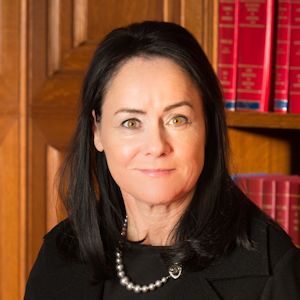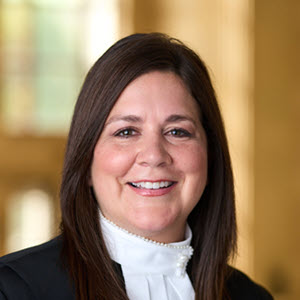Role and Responsibilities
Positioned at the pinnacle of the judicial branch of Canada’s government, the Supreme Court is the country’s final court of appeal.
It has jurisdiction over disputes in every area of the law. The Chief Justice and eight puisne judges answer a wide variety of important questions - from child support and corporate restructuring, to treaty and constitutional rights. The Court is bilingual. It hears and renders its decisions in French and English. It is also bijural, which means it applies the law in Canada’s two distinct legal traditions – Quebec civil law and common law. Cases most often come from provincial and territorial courts of appeal, the Federal Court of Appeal and the Court Martial Appeal Court of Canada.
The Supreme Court of Canada is impartial and independent. It is the guardian of the Constitution and the Charter of Rights and Freedoms. Together, the Court’s nine judges interpret and provide guidance on Canada’s laws to ensure everyone may have equal protection and benefit of the law. Supreme Court decisions are important because they assure that legal principles are correct, consistent and constitutional throughout the Canadian judicial system.
There are no trials or juries at the Supreme Court. No one testifies or introduces evidence. Judges hear in-depth arguments about important legal issues and ask the lawyers many questions. Members of the Court will only hear cases they consider to be of national significance, with the exception of automatic appeals of criminal cases where lower appeal court judges have disagreed on a point of law.
Selection of judges
Judges are selected in a transparent process where a non-partisan advisory board recommends candidates of the highest quality to the Prime Minister. Once the Prime Minister nominates someone, the person appears before a special parliamentary committee before their formal appointment to the Supreme Court of Canada. You may read more about the process to select the Court’s most recent member by visiting the site of the Office of the Commissioner of Federal Judicial Affairs.
References
Sometimes federal, provincial and territorial governments ask the Supreme Court for an advisory opinion on a proposed or existing law. These requests are called a reference and they typically ask if a piece of legislation is constitutional. The most recent judgment on a reference was in the spring of 2021, when the Supreme Court ruled that the federal government’s Greenhouse Gas Pollution Pricing Act to fight climate change was constitutional.
The Supreme Court of Canada is also active on the world stage. It is a respected member of international court organizations such as the World Conference on Constitutional Justice, Association of Francophone Constitutional Courts and the International Association of Supreme Administrative Jurisdictions.
History of Hearings Outside Ottawa
On September 25, 2019, Chief Justice Richard Wagner looked out at a full public gallery at Manitoba’s Court of Appeal and observed, “It is the first time in history the Supreme Court has sat outside of Ottawa. I hope it will not be the last.”
“Every Canadian is welcome to walk through our doors and sit in our courtroom. Part of the reason we’re here today is to make that a little easier for people who can’t easily travel to Ottawa to see Canada’s highest court in person.”
Delayed by one year, due to the pandemic, the Supreme Court of Canada is once again hitting the road. Its destination is Quebec City, where Members of the Court will hear two important cases and engage with members of the public, students and members of the Quebec Bar Association.
Graciously hosted by Quebec Chief Justice Manon Savard, Superior Court of Quebec Senior Associate Chief Justice Catherine La Rosa and Quebec Court Chief Justice Lucie Rondeau, Members of the Supreme Court will sit at the Quebec Court of Appeal.
This visit follows the immensely popular and productive trip to Winnipeg three years ago. Hundreds of people lined up outside the courthouse each day to secure seats inside the courtroom. The nine judges toured city schools, met local officials and hosted an event for members of the public at the Canadian Museum of Human Rights.

The experience realized one of Chief Justice Wagner’s dreams – to share the work of the Supreme Court of Canada with Canadians.
“Every Canadian is welcome to walk through our doors and sit in our courtroom. Part of the reason we’re here today is to make that a little easier for people who can’t easily travel to Ottawa to see Canada’s highest court in person,” he said to those assembled. “But it’s not just the Supreme Court that extends this welcome. We have a strong and open court system in Canada, and you can visit virtually any court in the country and watch the proceedings, including the courtrooms right here in this building.”
Visits like these are made possible through strong partnerships with local officials. In Winnipeg, Chief Justice of Manitoba Richard Chartier, Minister of Justice and Attorney-General Cliff Cullen and Mayor Brian Bowman offered invaluable support and a very warm welcome to the Supreme Court. The Court also depends on the agreement of the parties and counsel to be heard outside Ottawa.
In addition to the two hearings, the Supreme Court will host a public event with a question and answer session.








